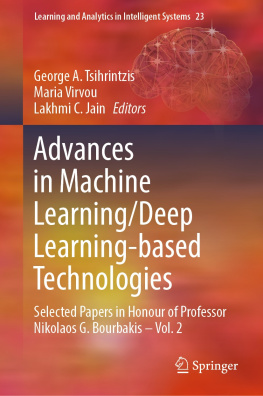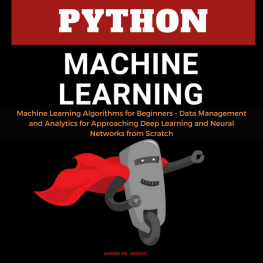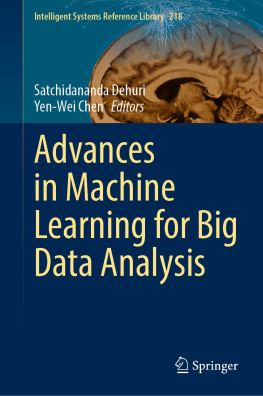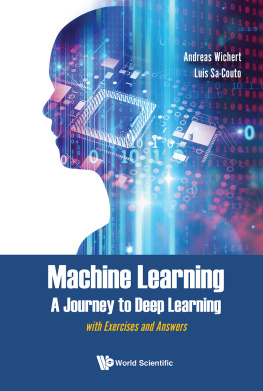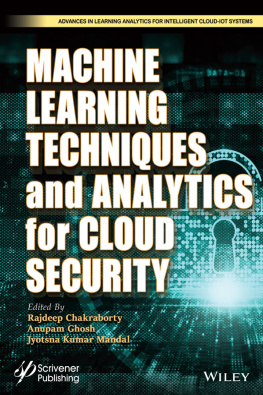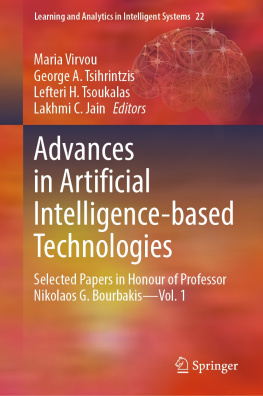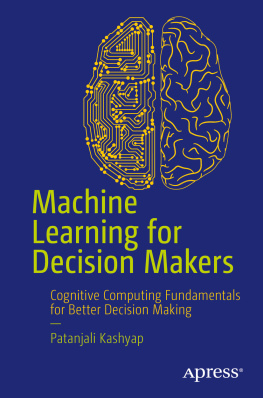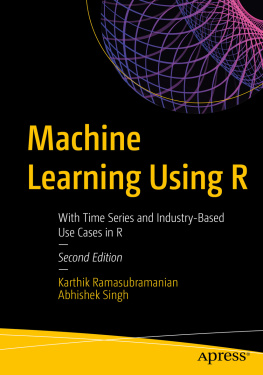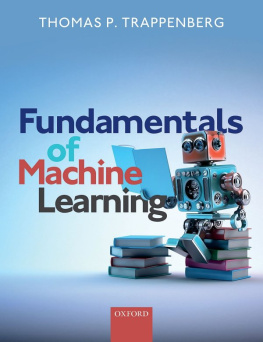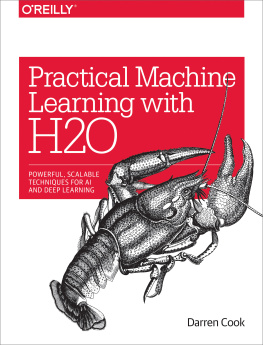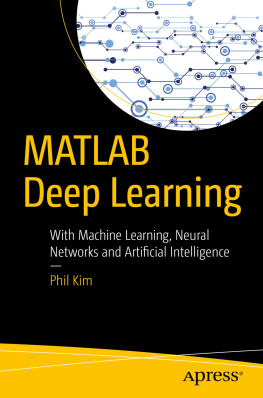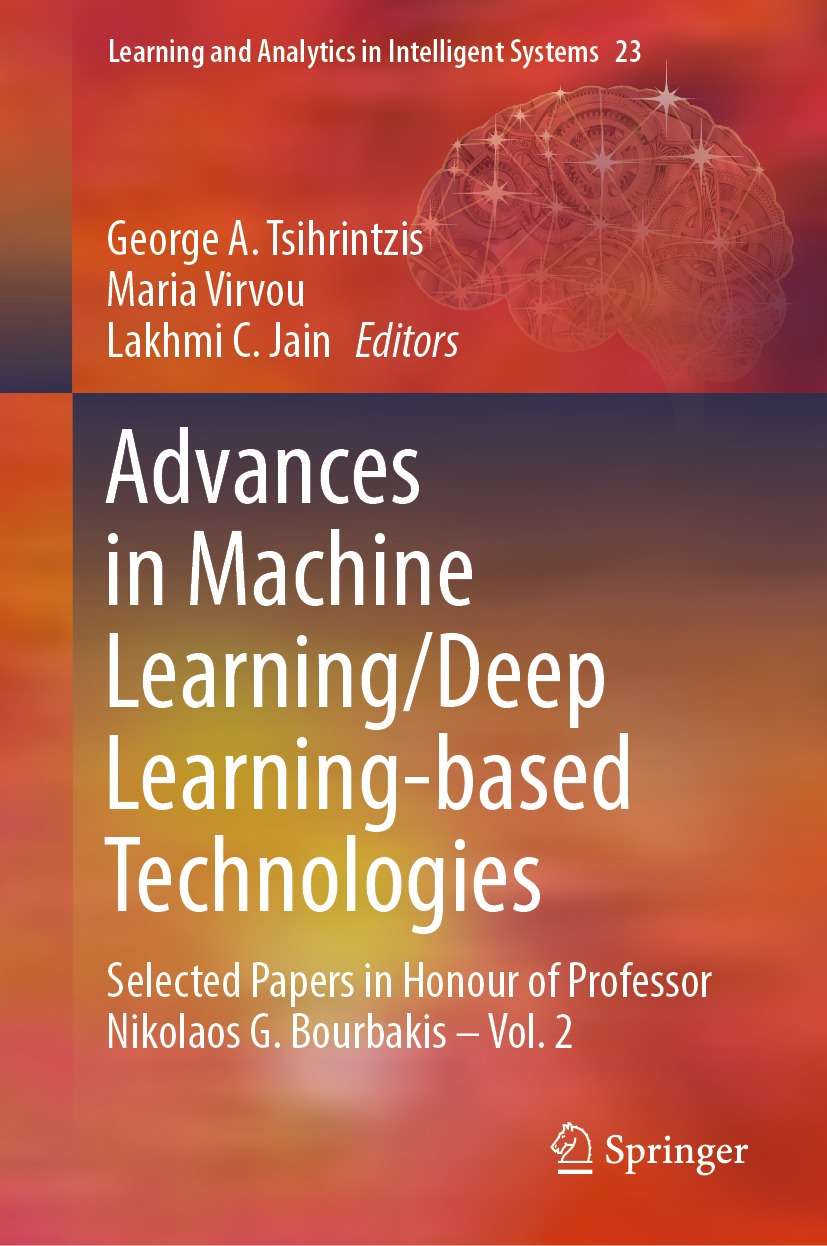George A. Tsihrintzis (editor) - Advances in Machine Learning/Deep Learning-based Technologies: Selected Papers in Honour of Professor Nikolaos G. Bourbakis – Vol. 2 (Learning and Analytics in Intelligent Systems, 23)
Here you can read online George A. Tsihrintzis (editor) - Advances in Machine Learning/Deep Learning-based Technologies: Selected Papers in Honour of Professor Nikolaos G. Bourbakis – Vol. 2 (Learning and Analytics in Intelligent Systems, 23) full text of the book (entire story) in english for free. Download pdf and epub, get meaning, cover and reviews about this ebook. year: 2021, publisher: Springer, genre: Romance novel. Description of the work, (preface) as well as reviews are available. Best literature library LitArk.com created for fans of good reading and offers a wide selection of genres:
Romance novel
Science fiction
Adventure
Detective
Science
History
Home and family
Prose
Art
Politics
Computer
Non-fiction
Religion
Business
Children
Humor
Choose a favorite category and find really read worthwhile books. Enjoy immersion in the world of imagination, feel the emotions of the characters or learn something new for yourself, make an fascinating discovery.
- Book:Advances in Machine Learning/Deep Learning-based Technologies: Selected Papers in Honour of Professor Nikolaos G. Bourbakis – Vol. 2 (Learning and Analytics in Intelligent Systems, 23)
- Author:
- Publisher:Springer
- Genre:
- Year:2021
- Rating:4 / 5
- Favourites:Add to favourites
- Your mark:
Advances in Machine Learning/Deep Learning-based Technologies: Selected Papers in Honour of Professor Nikolaos G. Bourbakis – Vol. 2 (Learning and Analytics in Intelligent Systems, 23): summary, description and annotation
We offer to read an annotation, description, summary or preface (depends on what the author of the book "Advances in Machine Learning/Deep Learning-based Technologies: Selected Papers in Honour of Professor Nikolaos G. Bourbakis – Vol. 2 (Learning and Analytics in Intelligent Systems, 23)" wrote himself). If you haven't found the necessary information about the book — write in the comments, we will try to find it.
As the 4th Industrial Revolution is restructuring human societal organization into, so-called, Society 5.0, the field of Machine Learning (and its sub-field of Deep Learning) and related technologies is growing continuously and rapidly, developing in both itself and towards applications in many other disciplines. Researchers worldwide aim at incorporating cognitive abilities into machines, such as learning and problem solving. When machines and software systems have been enhanced with Machine Learning/Deep Learning components, they become better and more efficient at performing specific tasks. Consequently, Machine Learning/Deep Learning stands out as a research discipline due to its worldwide pace of growth in both theoretical advances and areas of application, while achieving very high rates of success and promising major impact in science, technology and society.
The book at hand aims at exposing its readers to some of the most significant Advances in Machine Learning/Deep Learning-based Technologies. The book consists of an editorial note and an additional ten (10) chapters, all invited from authors who work on the corresponding chapter theme and are recognized for their significant research contributions. In more detail, the chapters in the book are organized into five parts, namely (i) Machine Learning/Deep Learning in Socializing and Entertainment, (ii) Machine Learning/Deep Learning in Education, (iii) Machine Learning/Deep Learning in Security, (iv) Machine Learning/Deep Learning in Time Series Forecasting, and (v) Machine Learning in Video Coding and Information Extraction.
This research book is directed towards professors, researchers, scientists, engineers and students in Machine Learning/Deep Learning-related disciplines. It is also directed towards readers who come from other disciplines and are interested in becoming versed in some of the most recent Machine Learning/Deep Learning-based technologies. An extensive list of bibliographic references at the end of each chapter guides the readers to probe further into the application areas of interest to them.
George A. Tsihrintzis (editor): author's other books
Who wrote Advances in Machine Learning/Deep Learning-based Technologies: Selected Papers in Honour of Professor Nikolaos G. Bourbakis – Vol. 2 (Learning and Analytics in Intelligent Systems, 23)? Find out the surname, the name of the author of the book and a list of all author's works by series.

